The Best Movies of 2022 (Keith’s List)
15 of the best from the year of multiverses and soulful donkeys.
It happens every year: I wonder if I’ll be able to find enough films to make a best-of list then end up fretting over all the movies I don’t have room to include. This year, I decided to make a much longer list, ranking all the films I liked more than a little. By the time I was done it stretched to nearly 60 titles. But cuts had to be made. So, with apologies to Mrs. Harris Goes to Paris, Prey, Fire of Love, Resurrection, Marcel the Shell with Shoes On and dozens of other 2022 films, here are the fifteen favorites I selected for my second best-of list for The Reveal, followed by a few other categories.
15. Happening (dir. Audrey Diwan)
Though set in 1963 France Audrey Diwan’s adaptation of Annie Ernaux’s autobiographical 2000 novel L’événement plays like a piece of of-the-moment dystopian fiction, one that’s less a warning of what’s to come than an echo of what’s already occurring . Anamaria Vartolomei stars as Anne, a student who has no doubt that she wants to end her unexpected pregnancy. But doing so means risking arrest, and her own life, when she’s forced to navigate first a judgmental medical system, then a shady underworld of illegal abortion providers. Diwan shoots the film with a brutal frankness that captures both the hypocrisy of those around Anne and the peril she faces while trying to maintain control of her own fate.
14. Hit the Road (dir. Panah Panahi)
The search for safety and freedom in the face of governmental oppression is just as central to Hit the Road, the directorial debut of Panah Panahi, the son of Iranian director Jafar Panahi. (The elder Panahi’s excellent No Bears also debuted this year, a year that saw him sentenced to six years in prison by the Iranian government.) Hit the Road begins as a raucous road trip in which a family of four — two parents and two sons — bickers their way through the stunning Iranian countryside. But the ominous notes introduced in the first scene, in which the family hides a cell phone for reasons that won’t be clear until later, grow in volume as they make their way to the border and prepare to say goodbye to their older son. Panahi freely mixes comedy with a sense of urgency as his characters wander a beautiful country seemingly determined to tear them apart.
13. Descendant (dir. Margaret Brown)
The premise of Margaret Brown’s documentary sounds simple. Descendant follows the search for the Clotilda, the last ship used to bring enslaved Africans to the United States. But the details complicate the story. Constructed by members of the wealthy Meaher family, the Clotilda made its journey decades after the U.S. banned the practice and was sunk to cover up the crime. What makes Brown’s documentary remarkable is less the hunt for a seemingly lost historical artifact than its depiction of how the events of the past continue to reverberate in the present, most strikingly in the Africatown community of descendants of those taken in the Clotilda, which now lives in the shadow of an industrial area owned by the Meahers.
12. Everything Everywhere All at Once (dir. The Daniels)
The title is no lie: Daniel Kwan and Daniel Scheinert’s unclassifiable multiverse-spanning family drama/action film/cosmic science fiction movie throws in everything from kung fu to talking rocks in telling the story of Evelyn (Michelle Yeoh), an overworked laundromat owner dealing with everything from tax problems to an unraveling marriage to a daughter (Stephanie Hsu) who resents her. It’s a thrilling, overwhelming, sometimes exhausting piece of filmmaking that’s equal parts spectacle and heart. In a year when many distinctive visions limped out of theaters virtually unseen, its breakout success is one of 2022’s most encouraging developments.
11. EO (dir. Jerzy Skolimowski)
Robert Bresson’s haunting 1966 masterpiece Au Hasard Balthazar uses a humble donkey as a mirror for the souls of all he encounters. It takes no small amount of confidence to offer a contemporary riff on a film so revered and seemingly inimitable, but octogenarian Polish director Jerzy Skolimowski throws himself into the task with EO, which follows a donkey on an episodic journey across Europe, where he encounters both kindness and cruelty everywhere he goes. The structure owes everything to Bresson but Skolimowski takes EO (and Eo) to one unexpected destination after another, bringing in bold visual touches and making stylistic choices far removed from the film’s austere inspiration.
10. Turning Red (dir. Domee Shi)
Everything Pixar does well — from winning characters to effortless metaphors — can be found in this coming-of-age story set in early ’00s Toronto in which 13-year-old Mei (Rosalie Chiang) deals with all the expected problems of entering adolescence and one unusual one: she turns into a red panda whenever she gets excited or stressed. With gentle humor (and the occasional giant monster rampage), Domee Shi’s feature debut uses Mei’s story to explore everything from first crushes to cultural identity and familial expectations to the enduring appeal of boy bands.
9. Saint Omer (dir. Alice Diop)
When Laurence (Guslagie Malanga), a Senegalese immigrant in France, stands trial for murdering her 15-month-old child, Rama (Kayije Kagame), a pregnant novelist and the child of Senegalese immigrants, finds herself drawn to observe the trial, where she finds it raises uncomfortable questions about her own identity. Inspired by a true story, documentarian Alice Diop’s narrative is anchored by a pair of striking performances perfectly in sync with the director’s understated approach to a story that leaves little doubt as to what happened but raises question after question about why.
8. The Banshees of Inisherin (dir. Martin McDonagh)
The story of two friends who maybe aren’t friends at all set in an idyllic Irish locale that might actually be a soul-sapping trap, Martin McDonagh’s latest slowly shifts from darkly funny to pointedly bleak as the intractability of its central conflict intensifies. Colin Farrell and Brendan Gleeson star as, respectively, an unassuming farmer and the tempestuous musician drinking companion who unexpectedly cuts him out of his life (or tries to). The stars (with able support from Barry Keoghan and Kerry Condon) balance comedy and tragedy in service of a film that depicts the inseparability of everything noble and awful about the history and culture of the country they call home.
7. All the Beauty and the Bloodshed (dir. Laura Poitras)
At once sprawling and intimate, Laura Poitras’ portrait of artist Nan Goldin follows its subject from the repressive mid-century suburbs to the New York underground to Goldin’s ongoing campaign against the Sacklers, the pharmaceutical family largely responsible for the opioid epidemic. Skipping back and forth in time, the film freely and easily mixes moments from Goldin’s life with her art and her activism because, for Goldin, one element cannot be separated from another.
6. Decision to Leave (dir. Park Chan-wook)
A kaleidoscopic take on classic film noir themes, Park Chan-wook’s latest is an ingeniously constructed crime story in which Detective Jang Hae-jun (Park Hae-il) gets in over his head while investigating a murder that might have been committed by Song Seo-rae (Tang Wei), a maybe/maybe not femme fatale. Park’s approach is both patient and propulsive, restless in its treatment of the police procedural but deliberate in the way it lets the emotions that drive the story build in intensity, putting a lot of weight on the shoulders of Tang’s excellent, elusive performance in the process.
5. Nope (dir. Jordan Peele)
Jordan Peele’s third feature is both a thrilling alien invasion film (of sorts) and a depiction of life on fringes of showbiz, where former child stars try to wring their long-ago fame for all it’s worth and a family struggles to keep a horse ranch in business when even cheesy commercials find it easier to use CGI than live animals. Puckish in spirit and grippingly executed, Nope delivers monster-movie thrills and a sense of nebulous dread via a threat whose vagueness only increases its hazy metaphorical power.
4. After Yang (dir. Kogonada)
The death of an android named Yang (Justin H. Min) leads the family he left behind (Colin Farrell, Jodie Turner-Smith, and Malea Emma Tjandrawidjaja) to contemplate loss, memory, and the meaning of life itself in this delicate sci-fi family drama. The second feature from Columbus director Kogonada is both gentle and profound, using fleeting moments as gateways to the biggest questions imaginable.
3. The Fabelmans (dir. Steven Spielberg)
Editing some home movie footage, aspiring teen filmmaker Sammy (Gabriel LaBelle) both stumbles on an uncomfortable truth about his family and discovers the ways in which film can reshape reality into more pleasing forms in director Steven Spielberg’s autobiographical family drama. The Fabelmans is less an heroic origin story than an uncomfortable journey to a past that might look clearer in retrospect but can never be fully understood.
2. TÁR (dir. Todd Field)
In charting the rapid fall from grace of Lydia Tár (Cate Blanchett), a composer and conductor whose monstrous abuses of power come to overshadow her groundbreaking achievements, writer-director Todd Field invites no sympathy for the devil. But, via Blanchett’s remarkable performance, his film forces viewers to see the character in full. What does it mean that someone capable of creating such beauty can also be capable of such ugliness? There may be no answer, but TÁR keeps finding one provocative variation on the question after another.
1. Aftersun (dir. Charlotte Wells)
A father and daughter’s summer trip to a Turkish resort provides a lifetime of uneasy memories in this stunning feature debut from Charlotte Wells. Paul Mescal stars as Calum, a divorced dad hoping to spend some quality time with his 11-year-old daughter Sophie (Frankie Corio). For Sophie the trip offers an extended glimpse into worlds she can’t quite comprehend, be it the flirtatious rapport of the resort’s teen guests or her father’s ever-shifting (and increasingly dark) moods. The film at first seems like a casual collection of moments. Brace yourself for the final stretch, which brings all those moments together to devastating effect.
Performance of the Year: Cate Blanchett, TÁR
It’s tempting, just for the sake of not going with the obvious choice, to point to the many other outstanding 2022 performances like Farrell and Gleeson in Banshees or Tang Wei in Decision to Leave or Bill Nighy in Living. But Blanchett’s work is 2022’s towering acting achievement.
Scene of the Year: Editing the family vacation, The Fabelmans
The scene at the heart of The Fabelmans,one made all the more remarkable by the trust Spielberg puts in viewers to follow along and let the images tell the story while also demonstrating how easily that story can be altered and how the ugly parts of the past are filed away but never forgotten.
Reason for Hope: Everything Everywhere All at Once
Though the film’s fans haven’t always been on its best behavior, it’s been thrilling to watch such a strange, daring movie enjoy such success in a marketplace in which original ideas often have trouble finding breathing room. With luck, like the gateway indie hits of the 1990s, it will lead its admirers to explore other, even more far-flung corners of the film world.
Reason for Despair: Empty theaters (winner for the second year running)
While crowds turned out for Everything Everywhere and (more predictably) for films like Top Gun: Maverick and Avatar: The Way of Water, others struggled, including some of the year’s best films. TÁR, The Fabelmans, She Said, and Babylon all earned more awards season acclaim than audience attention. Earlier in the year, George Miller’s Three Thousand Years of Longing couldn’t move tickets and Bros never earned the rom-com audience it deserved. One such failure might be a fluke. The continued struggles of such films is truly alarming.
Special Effect: Teen Weaver
Yes, that’s Sigourney Weaver as Kiri, the gawky Na’vi teenager in James Cameron’s Avatar sequel. What’s more, she’s terrific in the part, serving as one of the best arguments for letting Cameron follow whatever path his passion for groundbreaking special effects takes him on.
Most Annoying Discourse: The Rage Tweeting and Manufactured Outrage Around Woke, Elitist Top 10 Lists
It’s so annoying I don’t even want to talk about it anymore.
Most Anticipated Film of 2023: Ferrari
Last year, I chose David Cronenberg’s Crimes of the Future as my most anticipated film of 2022. And while it didn’t make my Top 15 of the year, it pretty much lived up to my high hopes of a gnarly return to central Cronebergian themes while being unexpectedly poignant in the process. (On my much longer ranked list of 2022 films, it landed at 17, below Living and ahead of Armageddon Time.) So, in hoping that this can be true twice, I’m going to bestow this on a new film from another favorite director who hasn’t made a feature in a while, Michael Mann, who’s returning with an Enzo Ferrari biopic starring Adam Driver. Vroooooom.




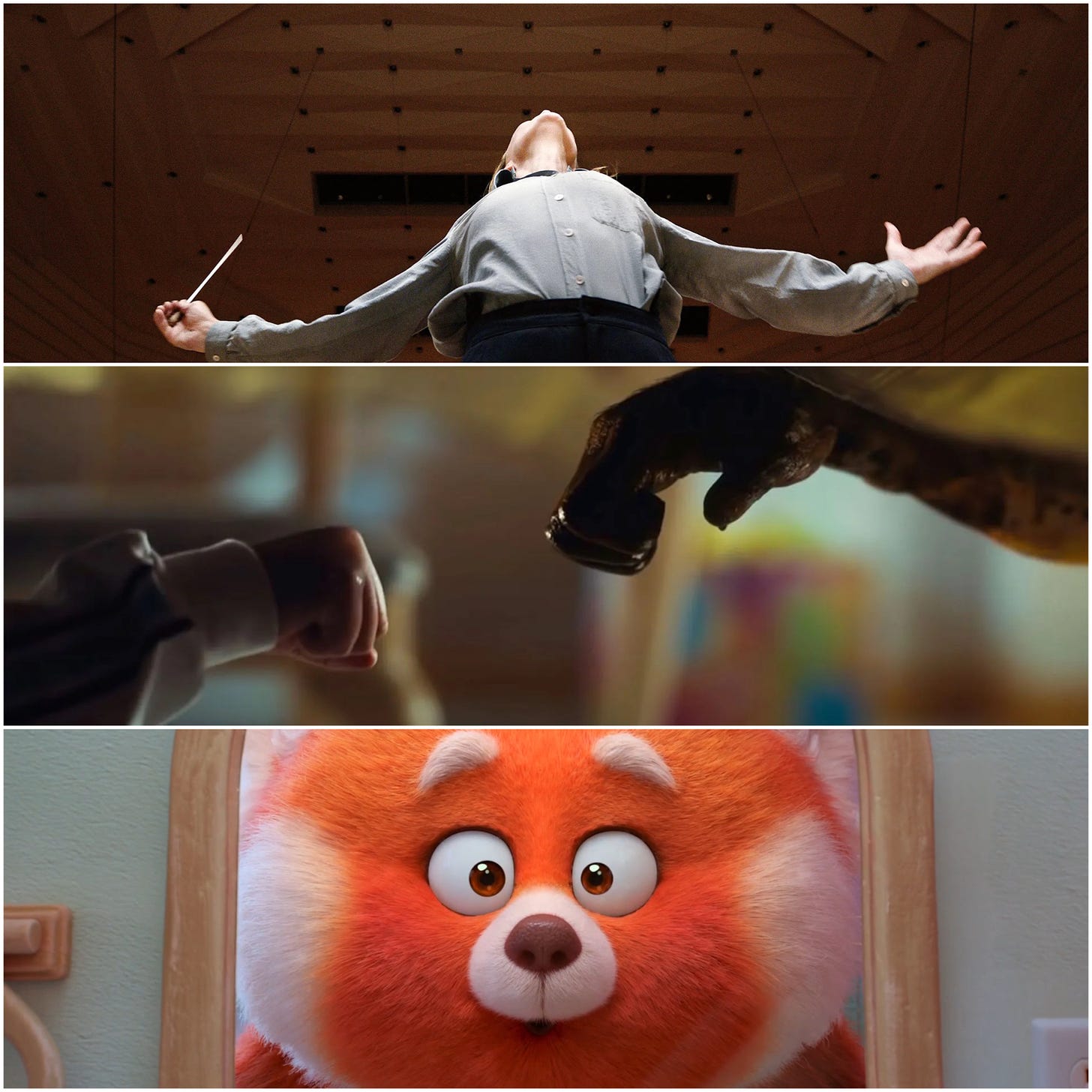

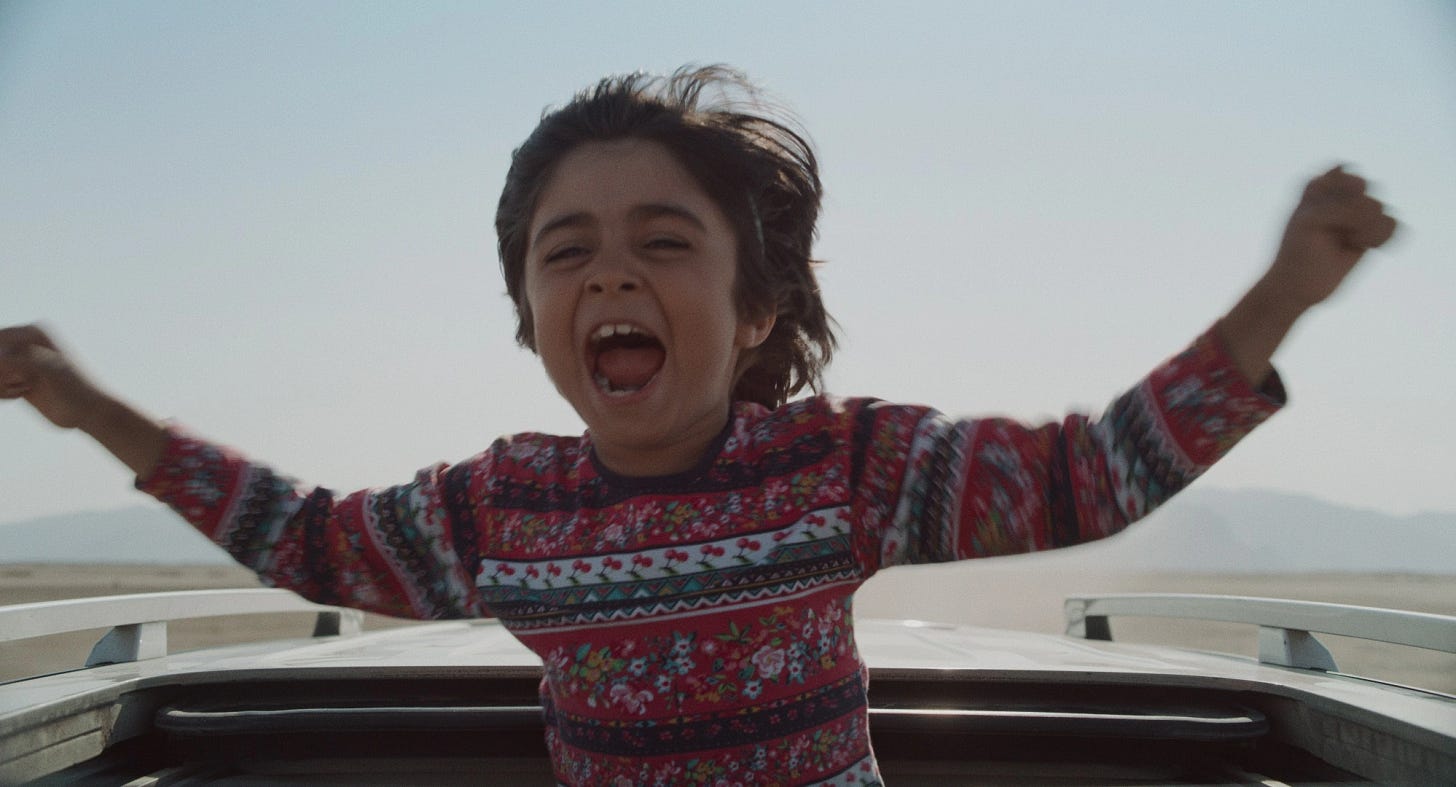
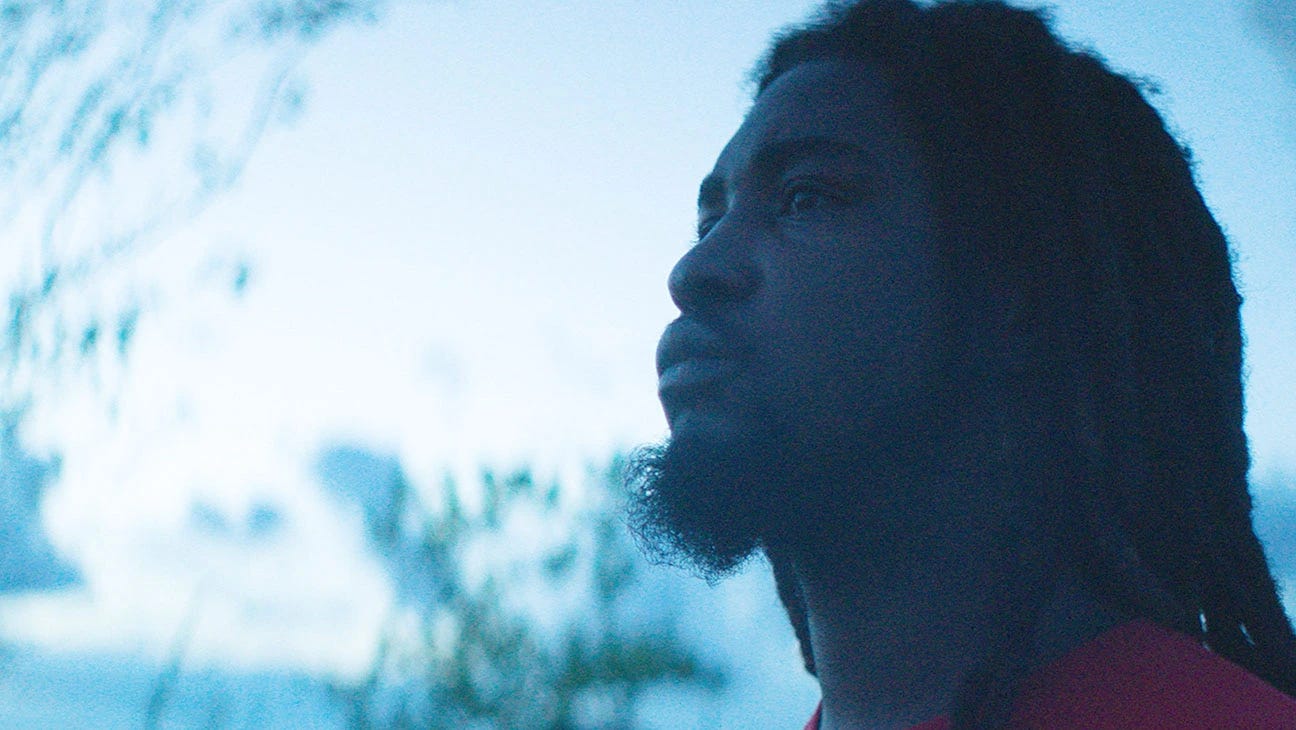

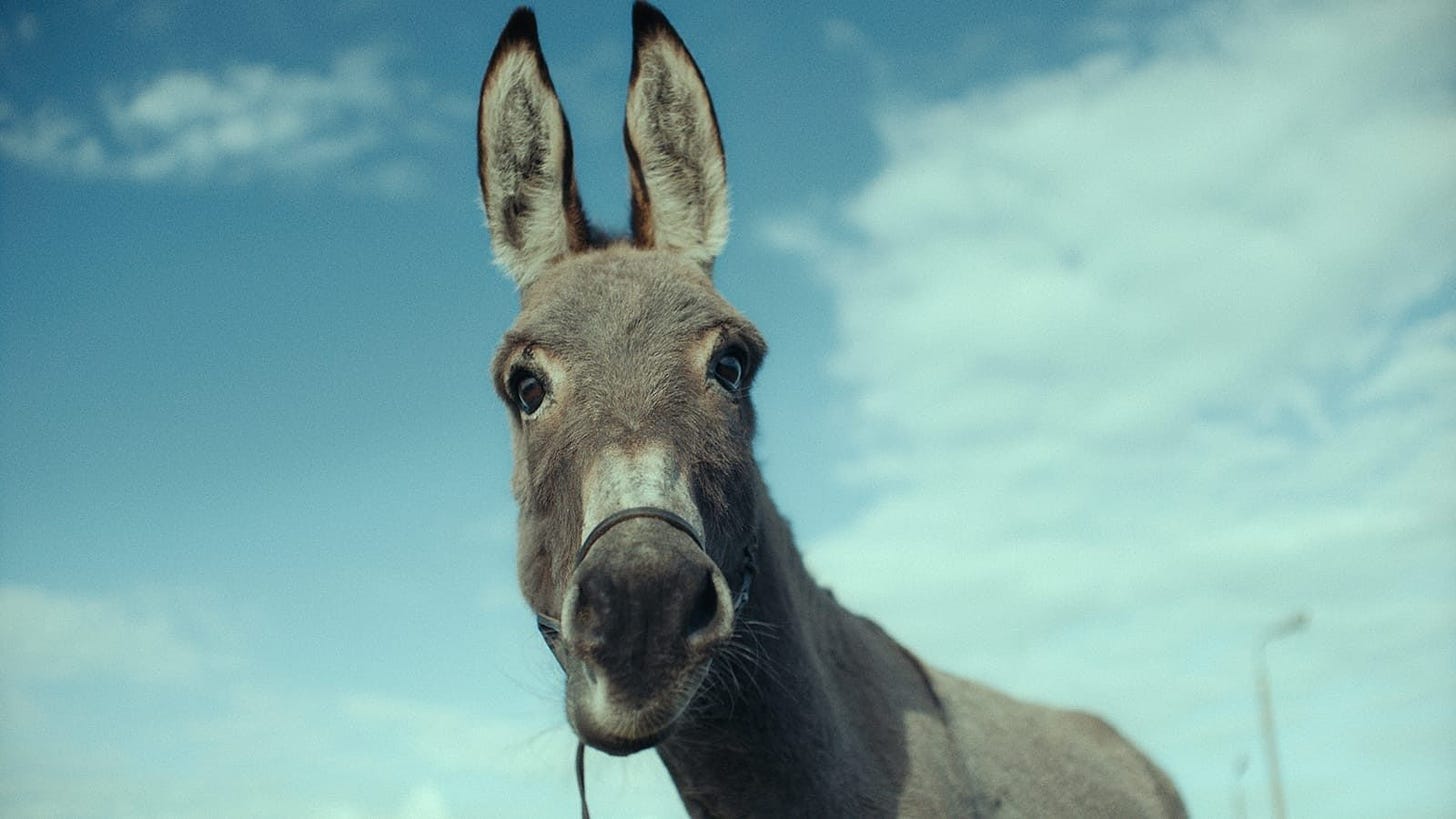
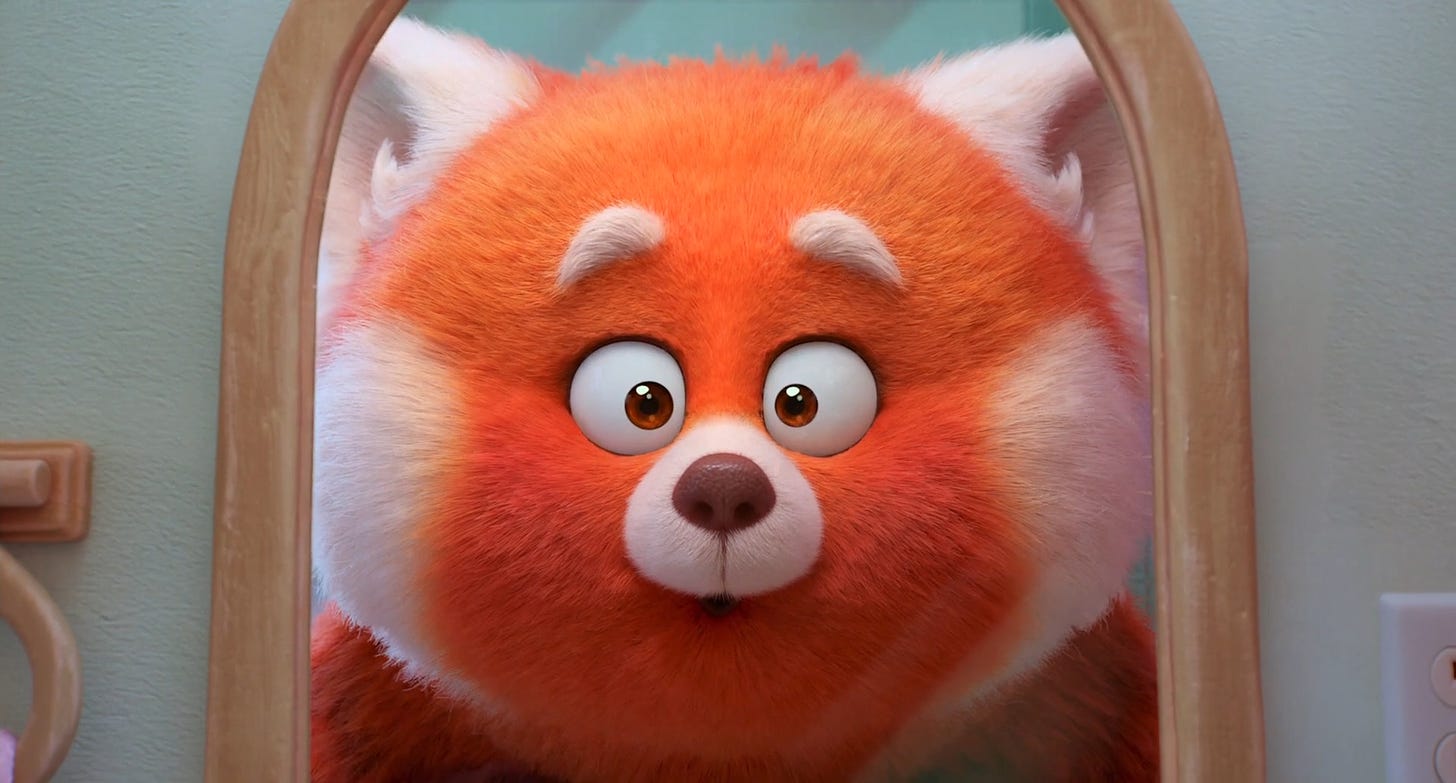
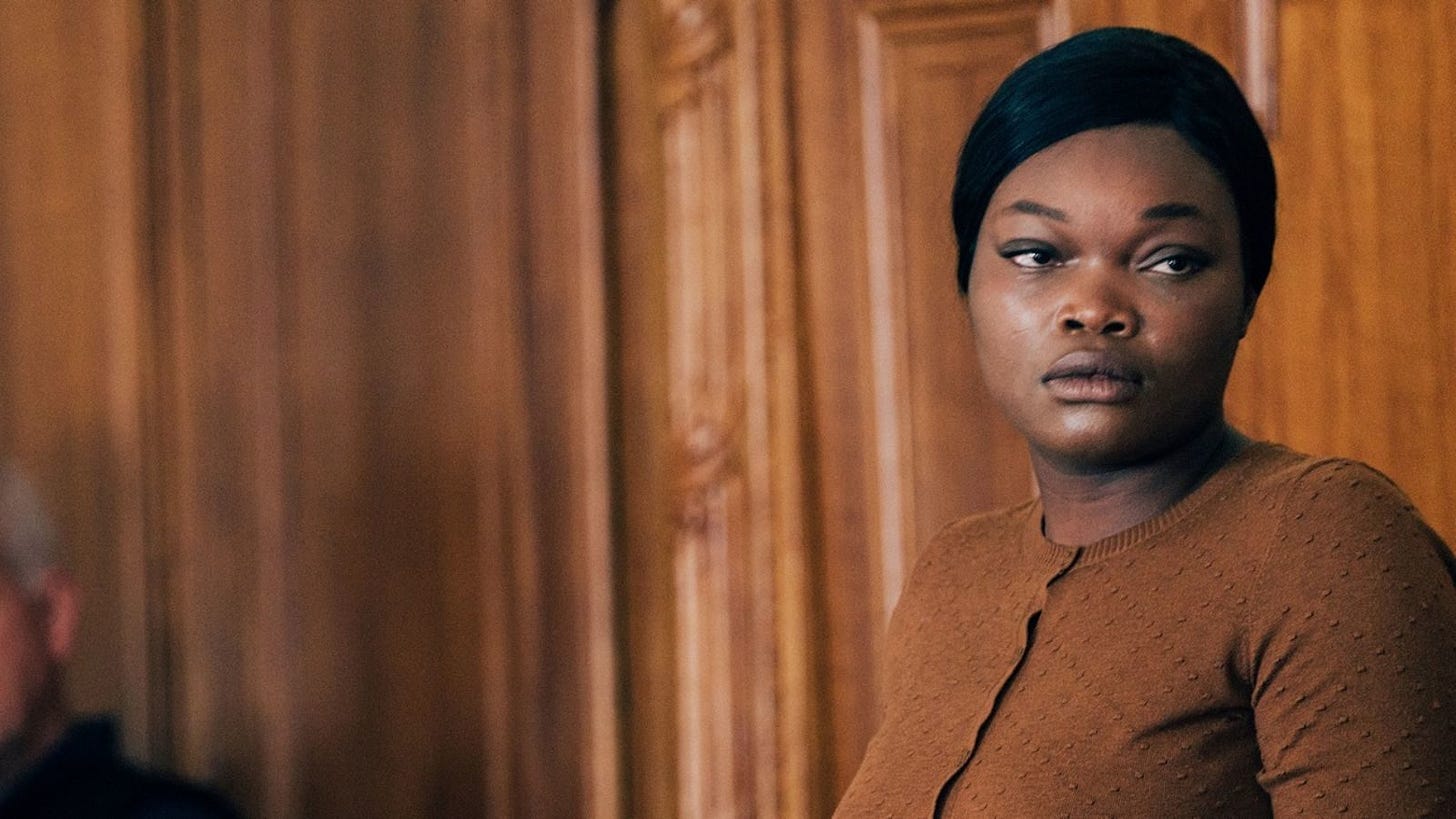
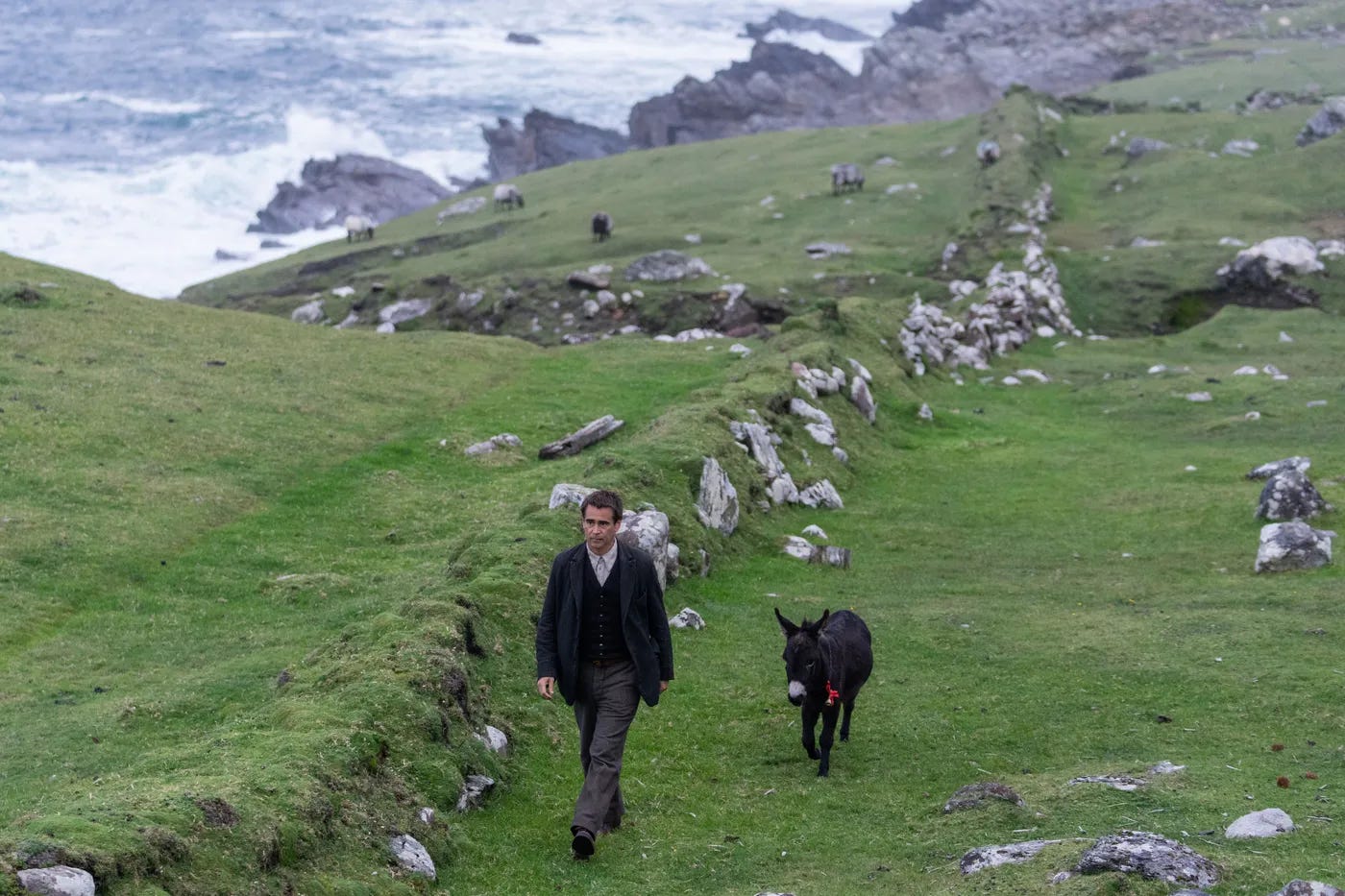

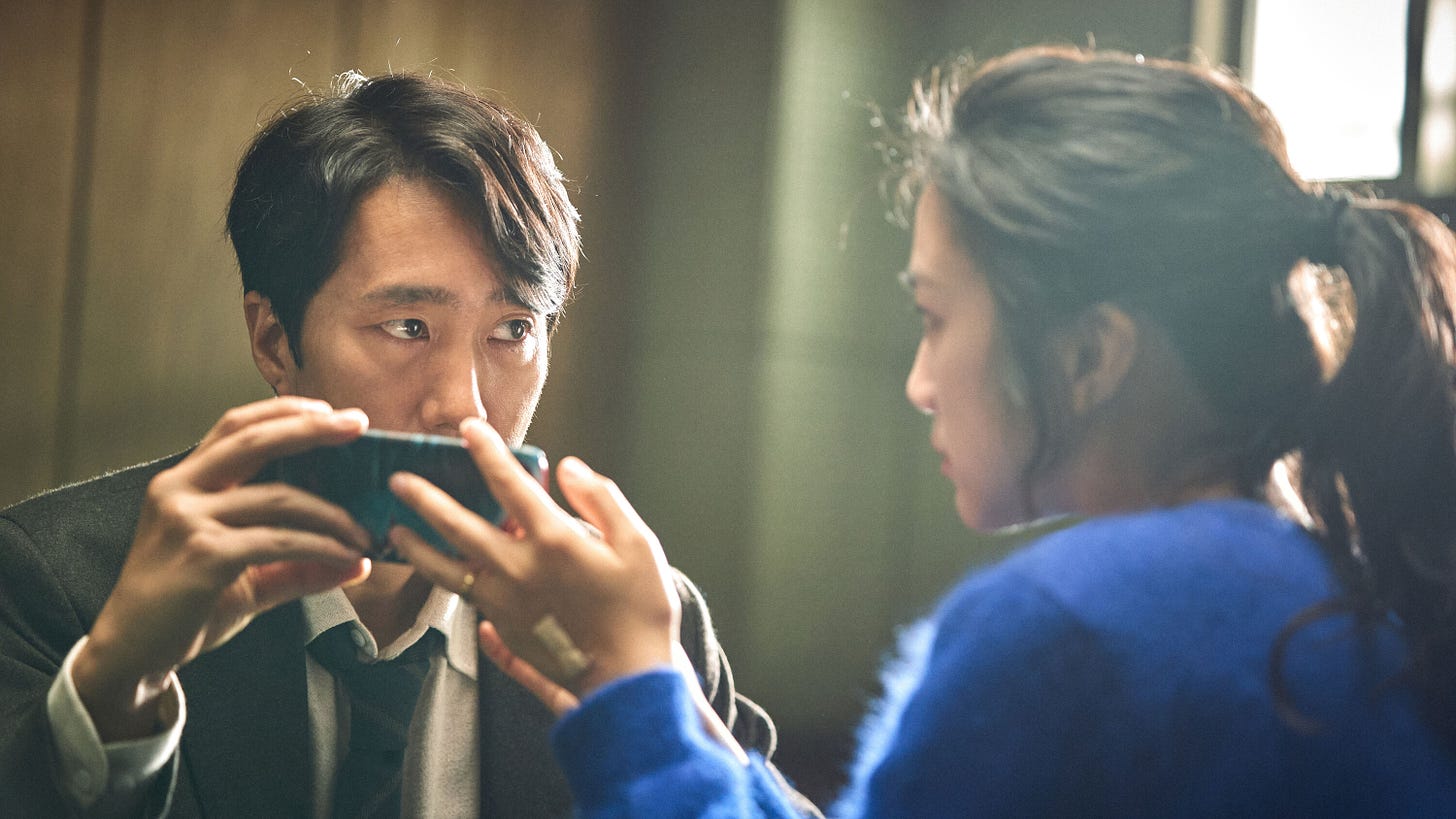



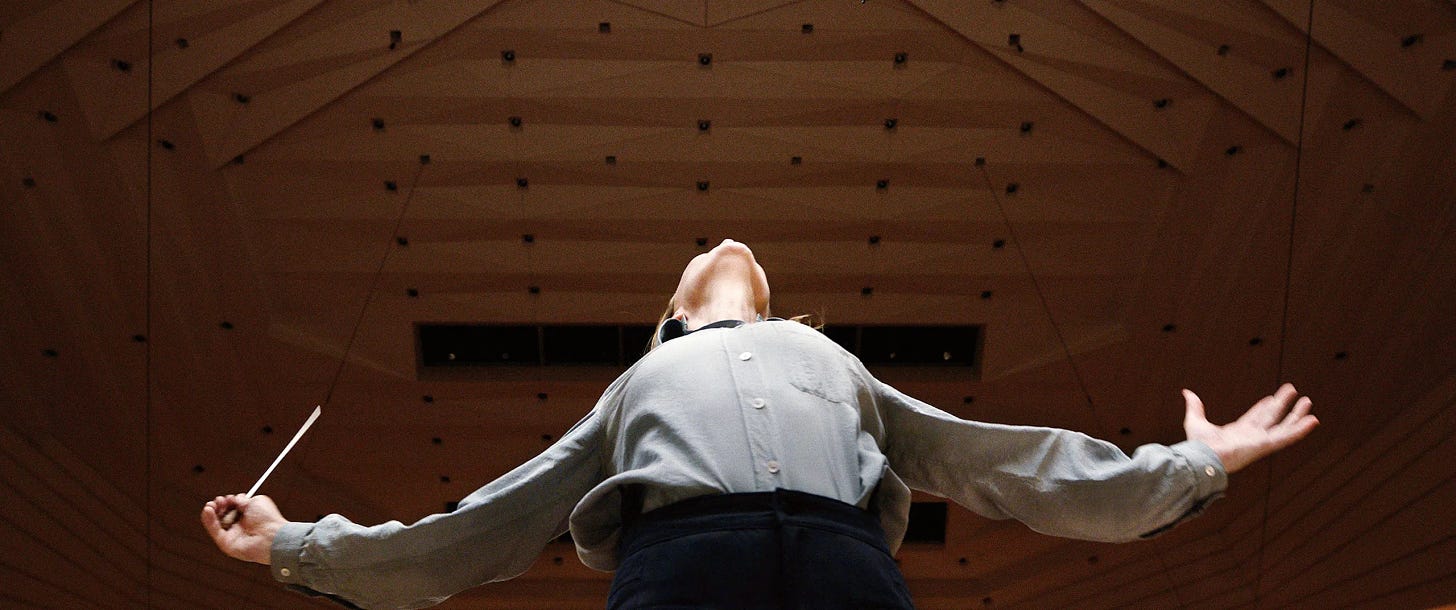
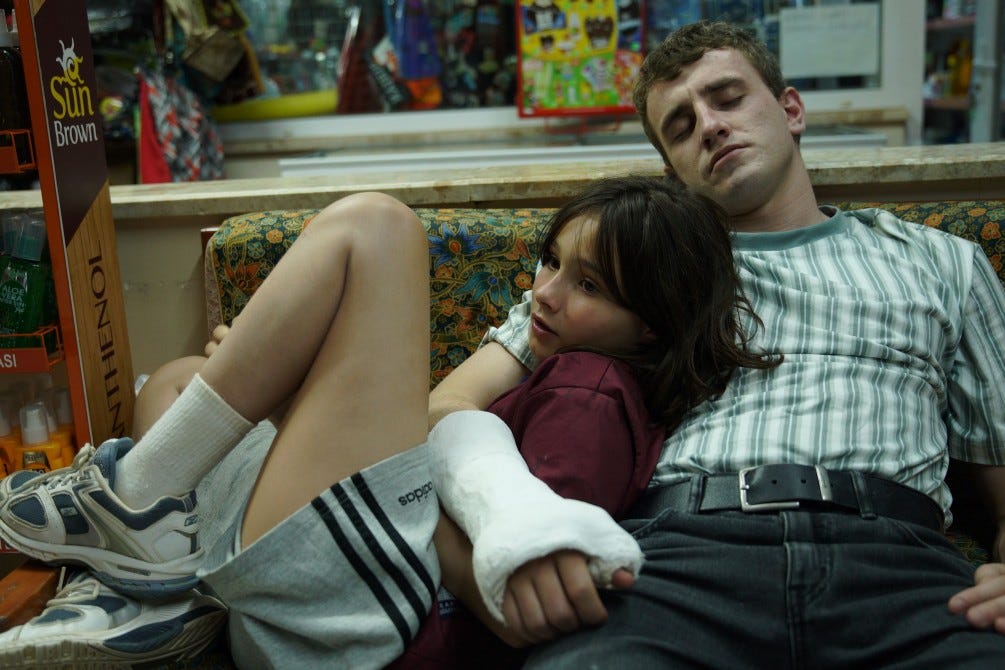
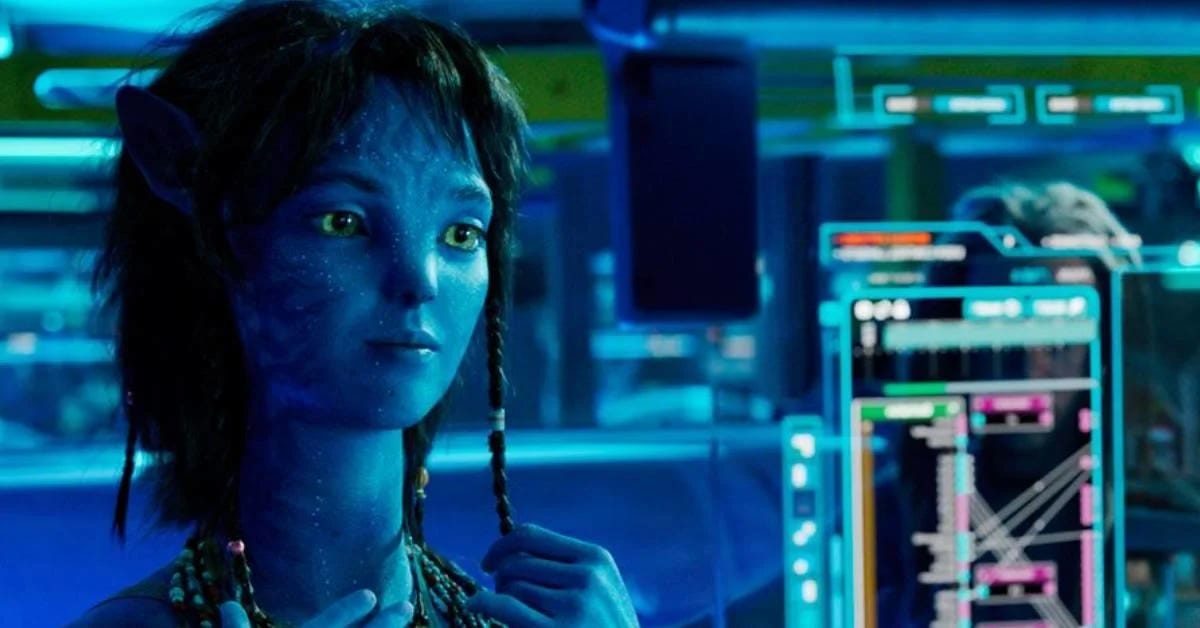
Fun Spielberg connection - compare the "editing the family vacation" scene in The Fabelmans to Cruise manipulating the pre-cog images in Minority Report. Both of them spinning the wheels of the past to find a clue in the footage
With regards to empty theaters, part of me wonders if this is where streaming might actually make a difference. I’d be curious to see what internal metrics show, but in my experience, movies that have been in theaters tend to get a lot more attention when they drop on a streaming service. To compare two movies from the same service this year, Glass Onion, a movie that had an extended/wide release by Netflix standards, felt like an event when it came to Netflix, whereas The Gray Man came and went without anyone talking about it.